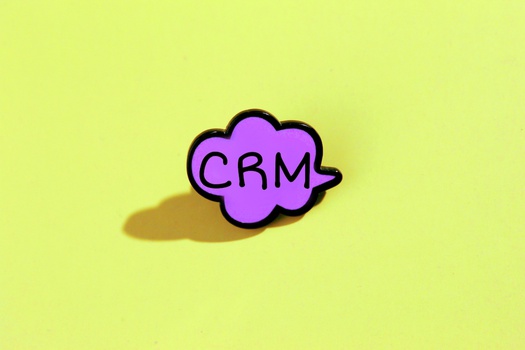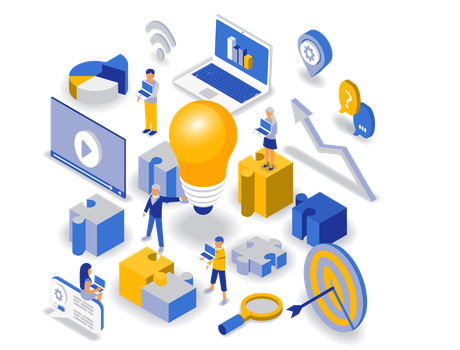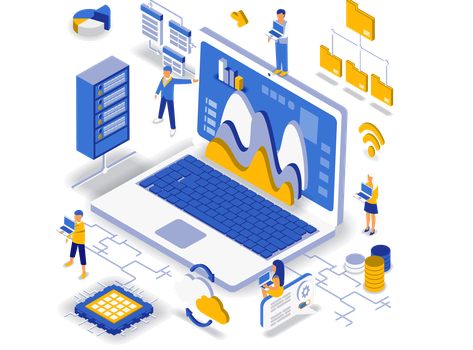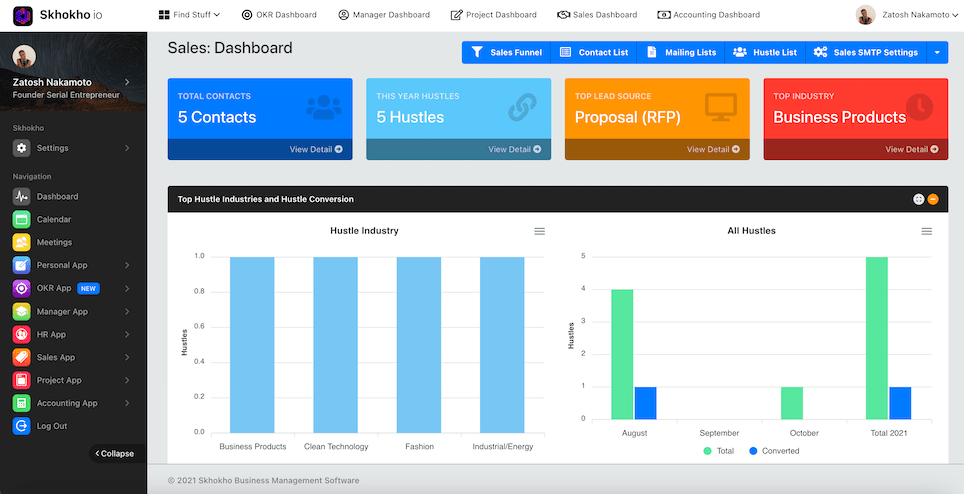The Four Greatest Benefits Of A Unified CRM For Remote Teams
With an increasing number of companies using remote teams, there is an urgent need to create a unified CRM for managing all these remote teams. As remote teams grow, communication becomes more and more an issue. Employees may start to feel distant from the organization and it becomes harder to keep the team motivated. At this point, it becomes necessary to introduce a CRM system.

When it comes to businesses, one of the most important aspects of running a successful business is having a CRM (Customer Relationship Management) system in place. This helps businesses stay organised while providing the best customer experience.
In this article, you will learn about the main benefits of a CRM system for a remote team. We will focus on the following:
- Remote work challenges
- Defining CRM Software
- How a unified CRM solves many remote work challenges
- Best CRM software
Remote work challenges
While remote work helps many businesses unleash the potential of their workforce, it also poses to some of the most important challenges that are faced. These challenges need to be addressed and resolved by businesses to ensure that the remote work culture is adopted and successful. In this blog, The most common challenges faced by companies with remote teams:
#1. Data Silos
When companies allow their employees to work remotely, they run the risk of data silos forming. Data silos occur when different departments within a company have different systems for storing data, which makes it difficult for them to share information. This can lead to inefficiencies and duplication of work.
In an environment where one system is devoted to deals, another to marketing campaigns, and another to delivery, it is difficult to gain a comprehensive view of the customer journey and connect data points in a way to help determine business performance and ROI accurately.

Solution: One way to prevent data silos from forming is to have a central repository or CRM for all company data. This repository or CRM should be accessible to all employees, regardless of their location. Another way to prevent data silos is to encourage communication and collaboration between different departments. When employees are able to easily share information, they are less likely to duplicate work or run into problems caused by inefficiencies.
#2. Lack of communication
Lack of communication can be a big challenge when working remotely. It can be difficult to stay in touch with co-workers and stay on the same page with projects. This can lead to feeling isolated and out of the loop.
Your team's productivity depends on effective communication. It is possible for misunderstandings to occur within your team as a result of poor communication. Often, this results in missed deadlines and inefficient internal processes.
Lack of communication can also make it difficult to collaborate on projects. When working remotely, it is important to find ways to stay in touch with co-workers and get feedback on projects. This can help to make sure that everyone is on the same page and that the project is progressing smoothly.
Solution: There are a few ways to overcome the challenges of lack of communication when working remotely. First, try to schedule regular check-ins with co-workers. This can help to keep everyone up to date on what is going on. Second, use communication tools such as Jitsi or Zoom to stay in touch with co-workers and collaborate on projects. Finally, make an effort to socialize with co-workers outside of work. This can help to build relationships and make working remotely feel less isolating.
#3. Unclear OKRS
Setting and achieving clear OKRs (Objectives and Key Results) can be difficult for remote workers, who may lack visibility into what their colleagues are working on and how it fits into the bigger picture. Without a clear understanding of the company's goals, it can be hard for remote workers to know what they should be focusing on and how their work fits into the overall strategy. This can lead to frustration and a feeling of being disconnected from the rest of the company.
Without being in the same physical space as your team, it can be difficult to ensure that everyone is on the same page when it comes to what the OKRs are and how they should be met. This can lead to confusion and frustration, and can ultimately impact the quality of work that is produced.

What is CRM software?
We have discussed this topic many times, for now let us briefly explain what it is.
CRM stands for Customer Relationship Management and it helps organizations monitor their customer relationships. CRM software will help you manage customer information, such as the number of customers who have purchased products or services from your company, projects associated with these clients etc. The CRM software used by the company helps sales and marketing professionals understand their customer better.
How a unified CRM solves many remote work challenges
There are numerous benefits that a unified CRM solution offers to businesses with a remote workforce:
1. Employee Communications
A unified CRM solution can help businesses keep track of employee communications. This is important for businesses with a remote workforce because it can help businesses with encouraging team communication. This can help businesses resolve issues quickly, and can help keep track of employee productivity.
2. Accessible Data
CRMs make customer data accessible to all employees. This ensures that everyone is on the same page and that everyone can access the information they need.
3. Improves customer service experience
CRMs improve customer satisfaction by giving businesses the ability to track customer interactions and identify issues. This helps businesses resolve issues quickly and improve the customer experience.
4. Improve team collaboration
CRMs improve team collaboration by giving businesses the ability to share customer data. This ensures that everyone is on the same page and that everyone can access the information they need.

5. Manage Customer Data
A unified CRM solution can help businesses manage customer data. This is important for businesses with a remote workforce because it can help businesses keep track of customer communications, and purchase history.
CRMs are designed to capture and keep track of customer data. They provide a central location to store contact information, communication histories, sales opportunities, and more. This information is valuable to companies because it helps them track customer engagement and identify sales opportunities. A unified CRM can also help businesses improve communication between employees and customers, and between employees and managers.
6. Manage tasks
A unified CRM solution can help businesses create, update and monitor tasks. This is important for businesses with a remote workforce because it can help businesses keep track of employee productivity, and can help businesses manage their workflows more effectively and efficiently.
7. Track Performance
CRMs help businesses track their performance. This helps businesses monitor their progress and identify areas for improvement. Helps businesses meet their goals: CRMs help businesses meet their sales and marketing goals. This helps businesses increase revenue and grow their business.

8. Automate the sales and marketing processes & reduce costs
CRMs automate the sales and marketing processes. For example, they can automate email campaigns and lead nurturing. This saves businesses time and money while helping them close more sales.
CRMs increase sales by helping businesses track leads and opportunities. This helps businesses close more deals and increase revenue.
9. Helps businesses scale
CRMs help businesses scale by giving them the ability to track more customers and sales opportunities. This helps businesses grow their customer base and increase revenue.
10. Helps in making data-driven decisions
CRMs help businesses make data-driven decisions. This helps businesses make informed decisions about their sales and marketing strategies. This helps businesses monitor their progress and identify areas for improvement.

The Best CRM Software in 2022
There is no denying the fact that there are many CRM softwares out there that one could use, but we are going to focus to only just one, Skhokho Sales and CRM software.

Skhokho is a business management software that has integrated a couple of applications that are important in a day-to-day operation of a business.
This software helps with eliminating every challenge that may be caused by working remotely. These are the apps skhokho has embedded into one software:
- Personal App - The central place for every app user to manage the following:
- Tasks assigned to them by their line managers and project teams
- HR File, employee records
- Leave records and applications
- Payslips
- HR Policies
- OKR App - Goal setting methodology that is designed to help organisations and teams meet their business targets. Skhokho has a built in OKR workflow that will help you set goals on a team and individual level.
- HR App - The HR App is really designed for HR Managers of organisations. It allows one to do the following:
- View and update HR files (Note HR Managers cannot completely edit the HR File, then can only add employee start-date and edit employee status)
- Add HR Policies to the system
- Edit, view and run Payroll
- Sales & CRM App - Skhokho CRM is a lightweight CRM solution designed for small businesses, to enable them to perform the day to day sales management activities and collaborate between sales teams, marketing teams and other departments.
- Manager App - Designed for departmental managers who are responsible for managing projects and/or departments with people reporting to them.
- Project App - The project app is designed to the one-stop-project management hub for your business. Skhokho Project Management Software is a lightweight Project Task, Milestone management solution designed for small businesses, to enable them to perform the day to day Project Management activities and collaborate between team members and departments.
- Accounting App - Designed to be a lightweight accounting management software for small business, to help teams keep track of project and business invoices, quotes and expenses. In addition one can also track vendors and clients - and associate them with invoices and expenses.
Try out SKhokho CRM for remote teams in 2023 and see the difference it can make to your remote team. Take advantage of your 14 day free trial by registering an account here, no credit card required.
For more information on how to use skhokho, click here.









